
The Botswana Zebra Migration: Makgadikgadi Pans
The Botswana zebra migration is an annual event that begins as soon as the summer rains drench the parched land. This year the rains were extremely late and the zebras had only arrived four days prior to my arrival. As far as could be seen zebra dotted the landscape. On our last morning we drove out to a pan, pulled out the binoculars, and poured a cup of coffee. Nearly twenty marabou storks (a large bird dubbed one of the the ugly five due to its mangy appearance) and a lone saddle bill stork were patrolling the waters just beyond a picked clean zebra carcass. One of the other guests suggested we walk out to inspect the carcass to determine why the animal had died. The sun had just crested above the horizon and the salt crystals that formed on the spiky grass leaves reflected the sun. We followed worn game paths down to the water looking for tracks of the animals that may have feasted on the zebra throughout the night. Black backed jackal tracks crisscrossed every which way and the prints of a brown hyena were visible in the soft ground.
As we approached the zebra remains, the marabou storks flew away one at a time, their huge wing flaps audible and with a wingspan of nine feet the sound was slow and deliberate. A small eastern clapper lark (a rather dumpy looking brown bird) was flying above the ground before plummeting in a kamikaze mating display. The tiny bird’s wings created a distinctive beating noise punctuating the otherwise silent day. The Kalahari songstress, the rufous-naped lark, melodiously called in the distance. There were no buildings, lights, or electric poles marring the scenery and the only human-made sounds were our footsteps. Our guide determined that the zebra likely died of natural causes since there was no sign of a struggle. His death fed countless animals that depend on these boom, lush times to get them through the harsh, dry winters. This is the African bush that I have come to love and in this remote corner of Botswana I felt connected to the wonderful web of life.
I was staying at Camp Kalahari, a camp situated on a private concession adjacent to the Makgadigkadi Pans National Park. For most of the year the salt pans are blinding white and the remnants of this ancient lake are visible from space, but in the wet season the areas is lush with green grasses and flowers and the pans fill with water. This is what attracts thousands of zebra to trek from as far as the Okavango Delta, over 300 miles away and as soon as the grasses die and the water evaporates they return to whence they came. This is the longest distance large mammal migration in the world and the reason I had decided to spend three nights here. Everywhere you looked zebras fanned out over the horizon. The females were dropping their young and the young male zebras were challenging the dominant males in an attempt at stealing female members of their harem. The diversity of animals in this area is not high and outside of the wet season, visitors are unlikely to see more than solitary animals or true desert dwellers trying to eek out a living in this hostile environment.
Activities are prescribed, and due to the low animal diversity, extend beyond traditional game drives, especially during the dry season when quad biking and overnights in the salt pans are offered. One morning we spent time with a large meerkat colony that had seven young meerkats pups. These tiny suricates had just made their first journey from the burrow they were born in to another one used by the colony. The adults shepherded the pups from the old den, sometimes carrying them and at other times prodding the reluctant youngsters. Upon arrival, the adults spent some time doing some housecleaning at the new burrow and then they left the pups and went off foraging. One by one they returned with a scorpion or worm. These babysitters dutifully fed their designated pup. Meanwhile the pups slept and practiced scanning – only to topple over after a few minutes. After visiting the meerkats, we went to see Chapman’s Baobab, the third largest tree in Africa, until it mysteriously fell over earlier this year. This had been an important landmark for locals and explorers alike. David Livingstone carved his name into the tree, although it is no longer visible. In this case nature erased man’s imprint.
Perhaps the activity I was dreading the most was the walk with the Bushman. I worry that cultural activities like this one could be exploitative. The San people are a marginalized group across Southern Africa and their traditional, nomadic way of life is under threat and many have been resettled away from their traditional lands. At Camp Kalahari a family led daily bush walks to khaki-clad tourists. It was utterly fascinating. We stopped at various trees and plants while one member of the family would explain how they used the plant. They dug up small shoots that protruded only inches above the ground revealing a large bulb or tuber that provided food, water, or medicine. When it came time to demonstrate how to make a fire, it appeared as if the older members of the family were instilling this knowledge in the young adults. While some members of the group seemed rather bored by the entire affair, others were animated and eager to share their stories.
Camp Kalahari is one of three camps that operate on the concession. Jack’s Camp is the luxury camp and San is a seasonal camp that operates in the dry season which also coincides with high tourist season. During my visit there were only two other guests at camp, which added to the relaxed, informal environment. Meals were shared at a long table in a central area and the food was amongst the best I have had at any camp I have visited. The canvas tents were large and adorned with kiln rugs, heavy wooden chests, and a wrought iron four poster bed. Recently the camp installed solar electricity and at night I found myself wishing that they continued to use lanterns to illuminate the tents and communal areas. Despite the modification, the camp was lovely.
Increasingly it seems difficult to find patches on this earth that are stunningly beautiful, remote, and unspoilt, but Camp Kalahari offered just that. On our first night we stopped for a surprise drink stop at the edge of a pan. The camp had set up a full bar, camp chairs, and a small fire. With gin and tonics in hand, we gathered to watch the sun make its rapid descent below the horizon. The mosquitos ate us alive but no one cared. The sounds of thousands of zebra stomping, snorting, and running across the grasslands provided the soundtrack to the still night. We talked around the fire until the only light came from the burning embers and the thousands of stars that appeared in the night sky. This is safari in Africa.
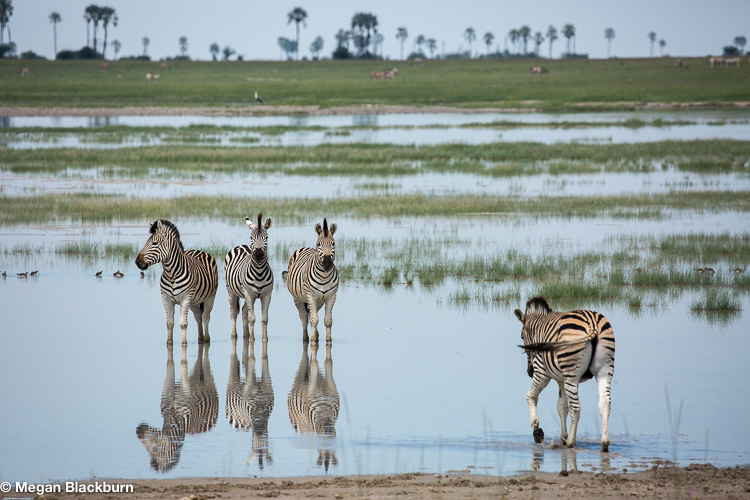
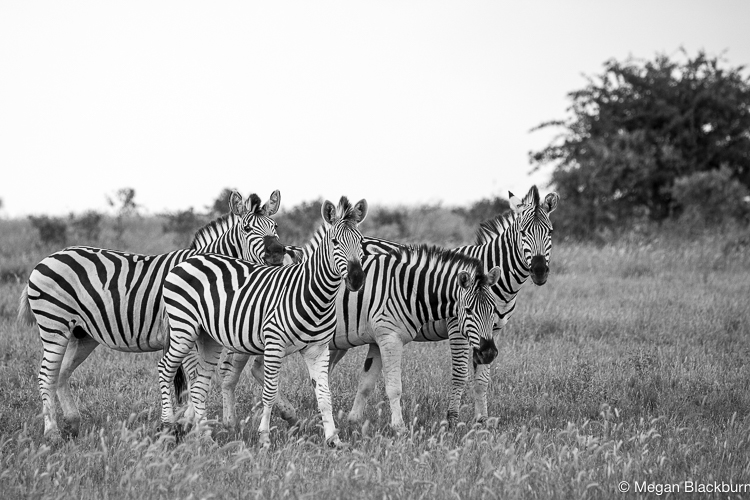
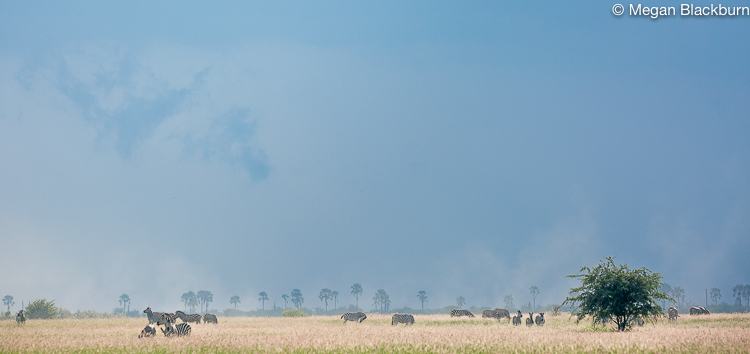
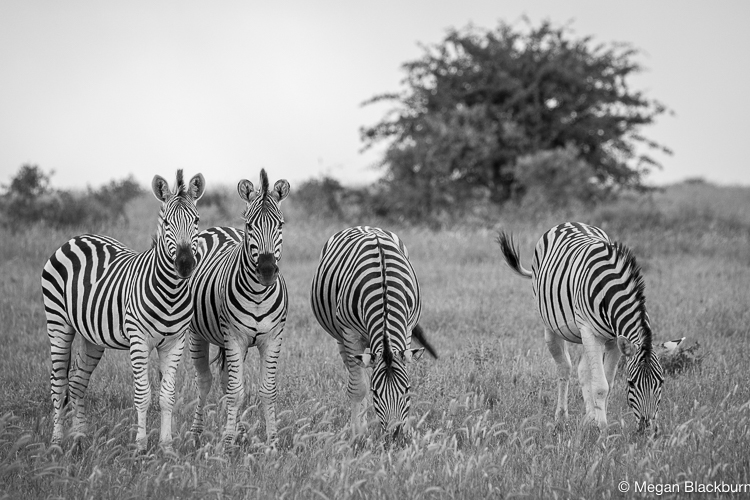
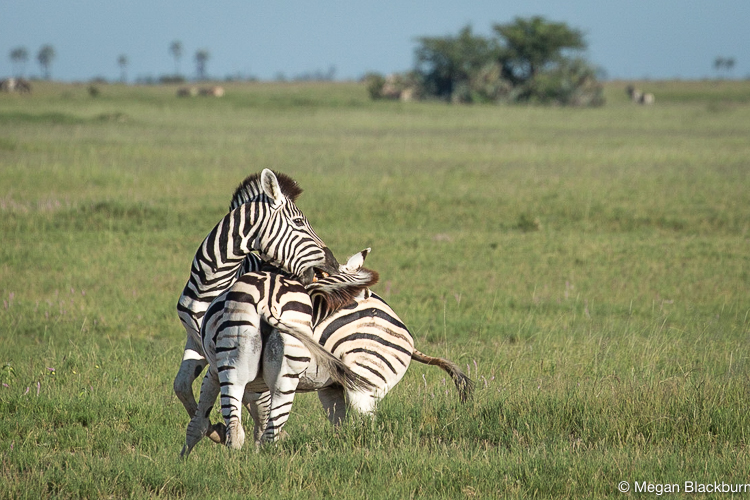
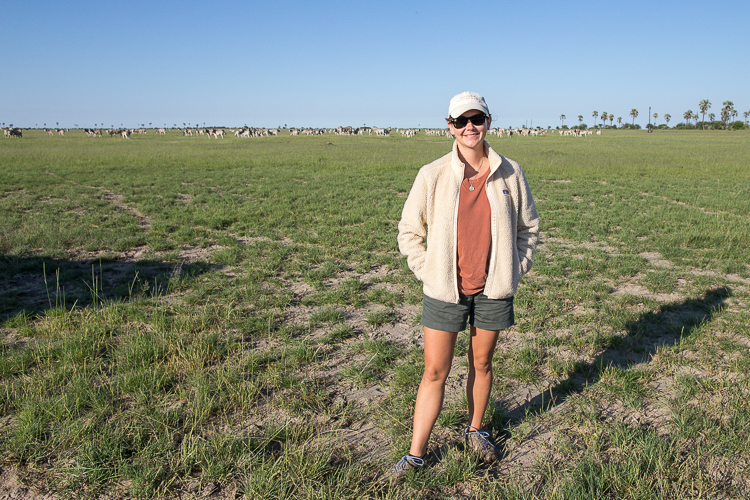
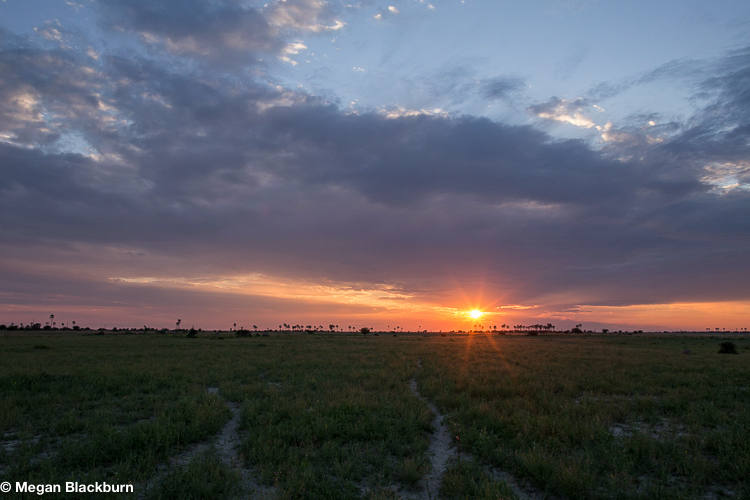
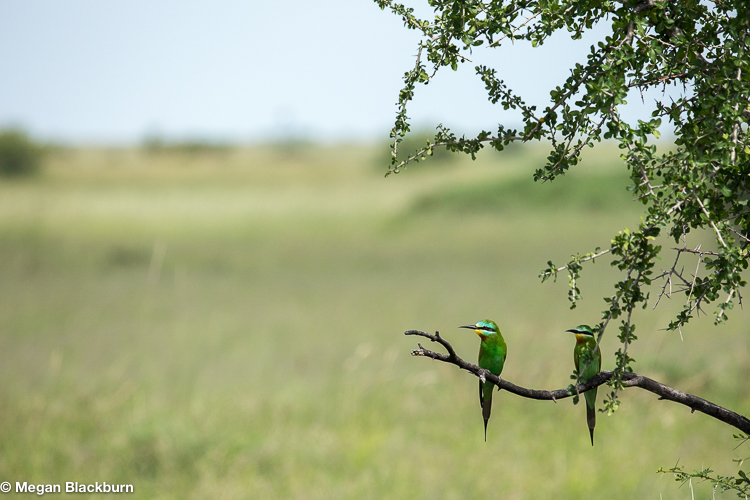
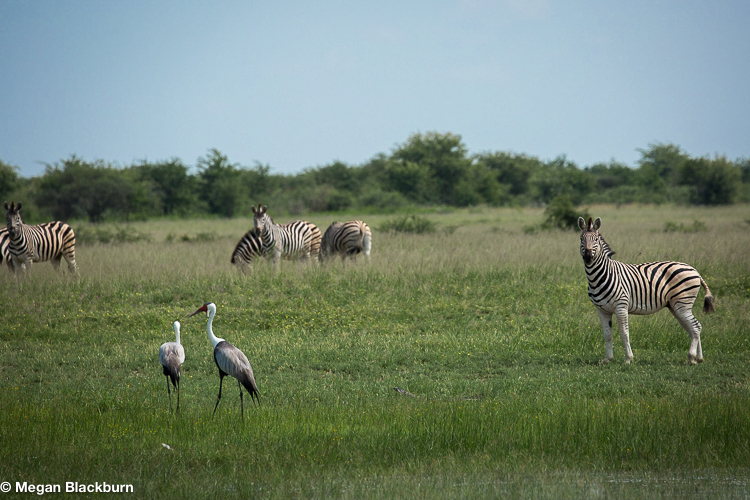
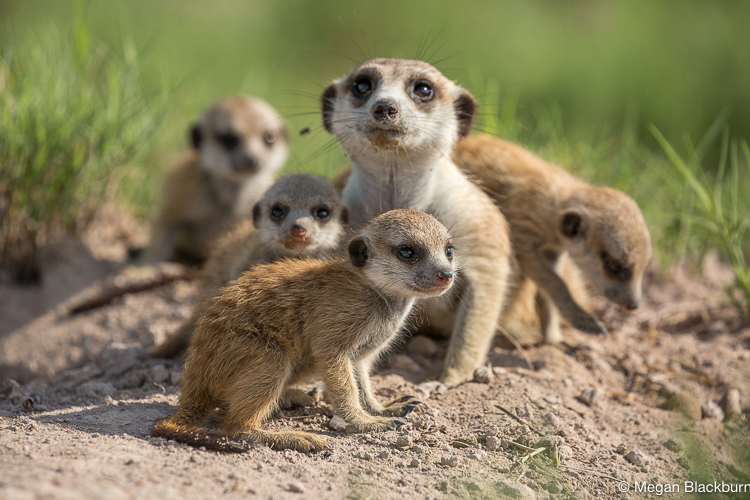
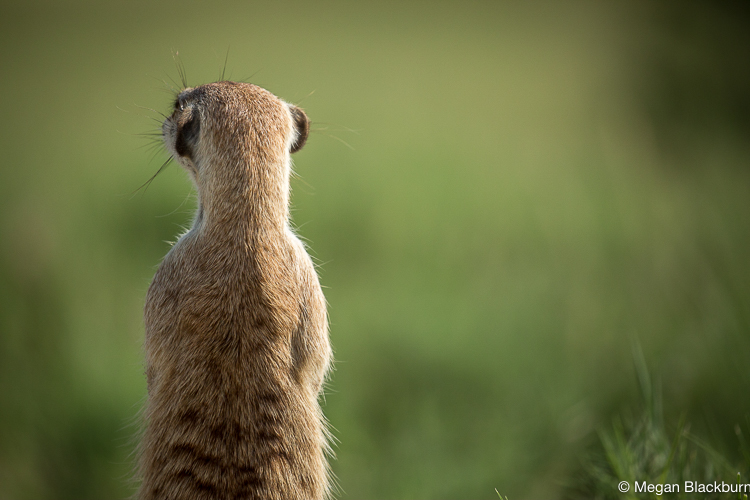
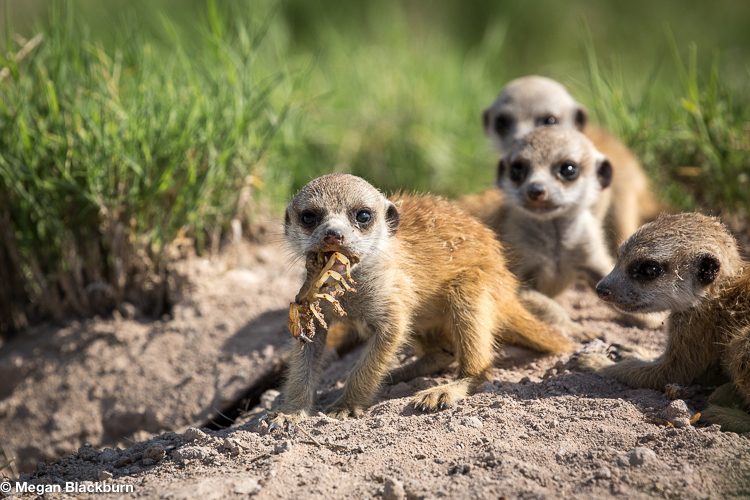
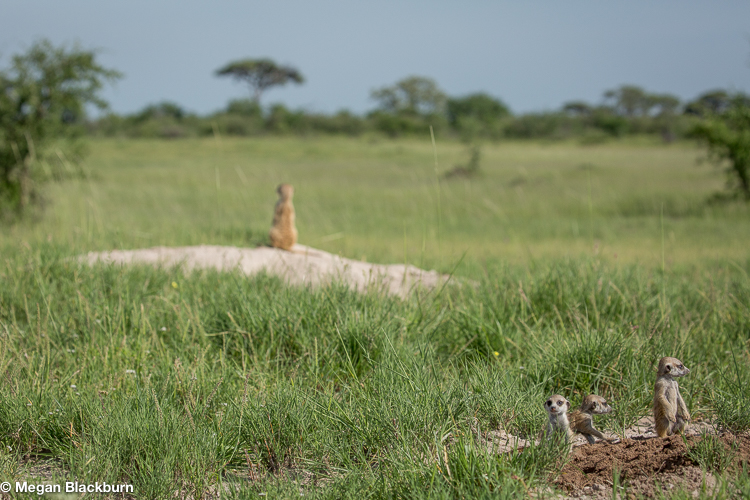
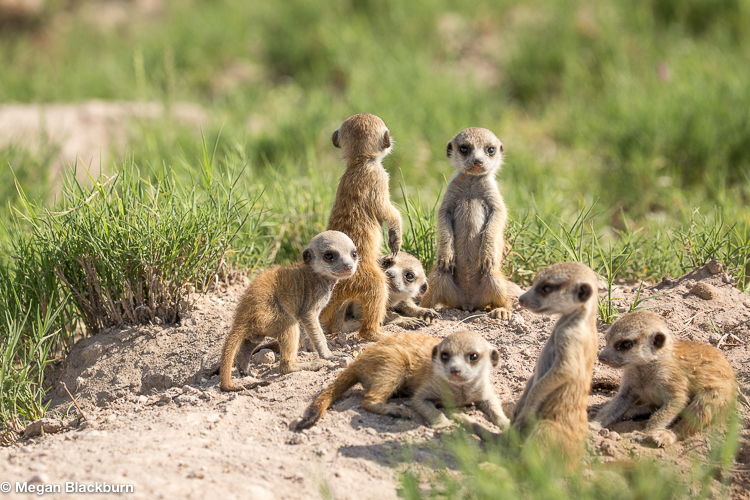
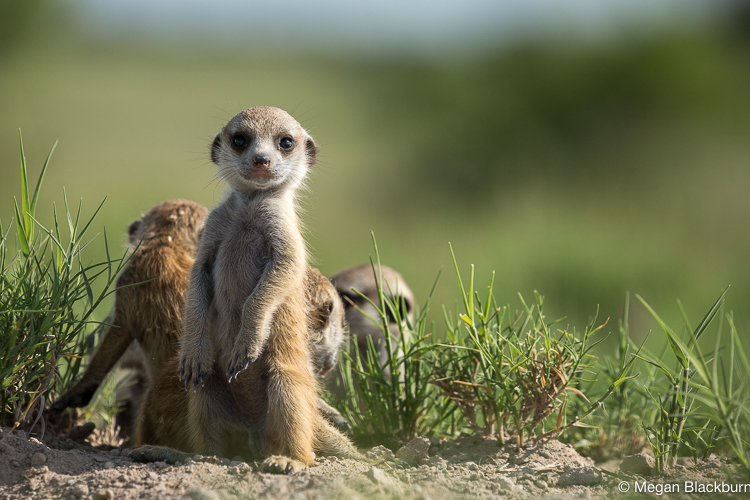
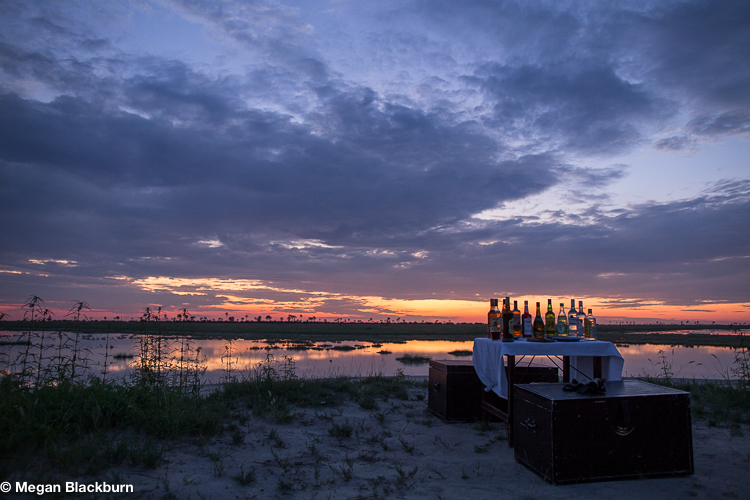



Great pictures, and a great description of the area.
Beautiful photo sequences of the meerkats shoot, M. It’s a very cool way of showcasing what you’ve witness with the pups! They are way too adorable!!
Meerkats are amazing to watch-endless hours of entertainment!